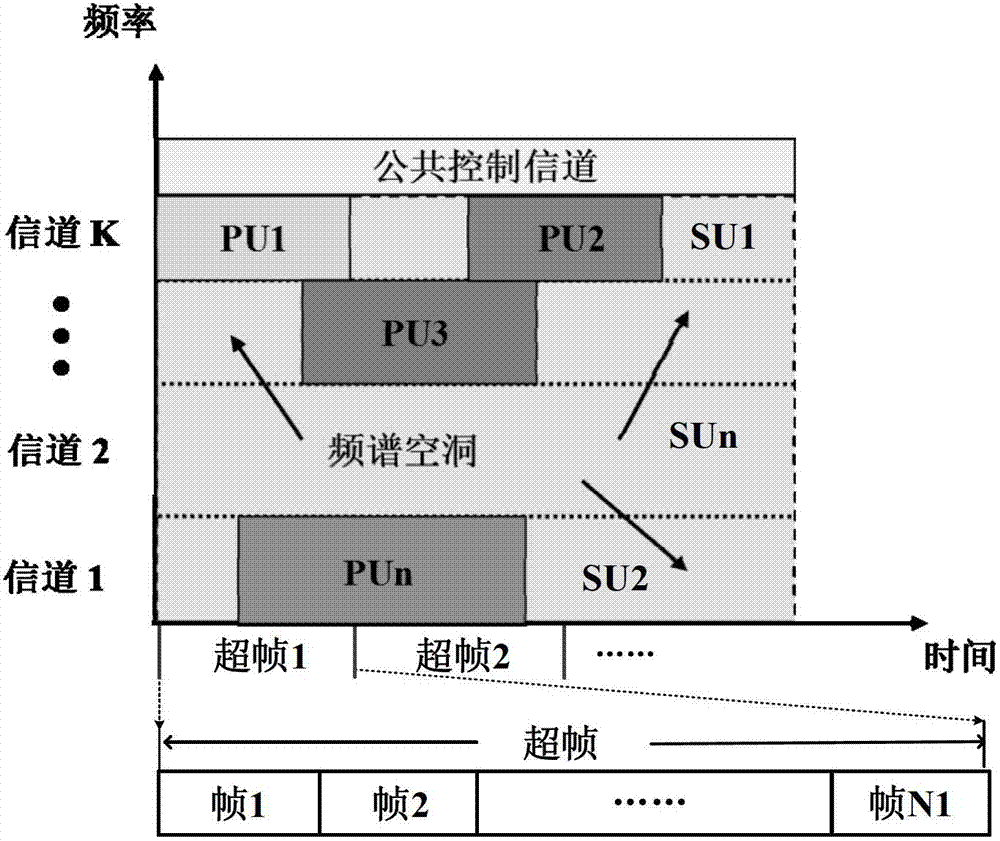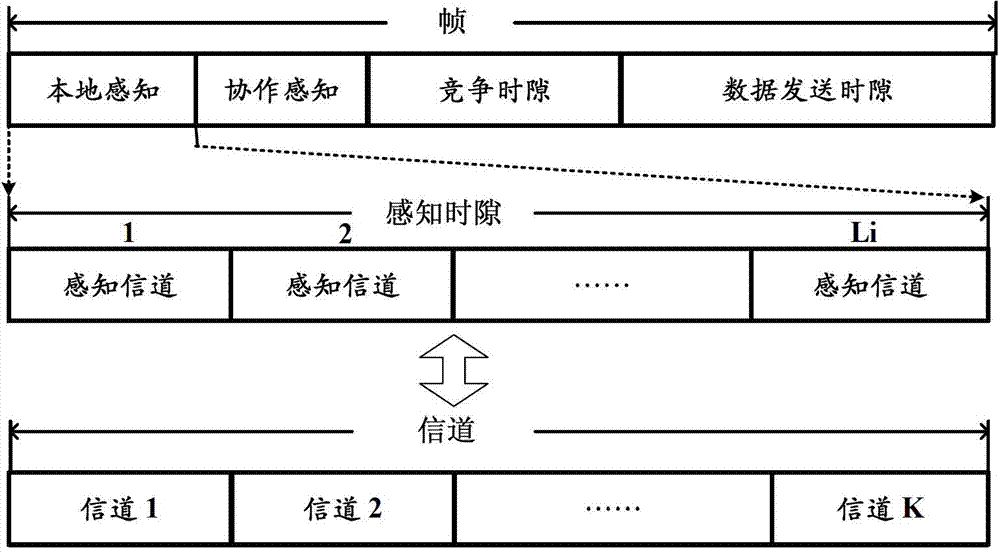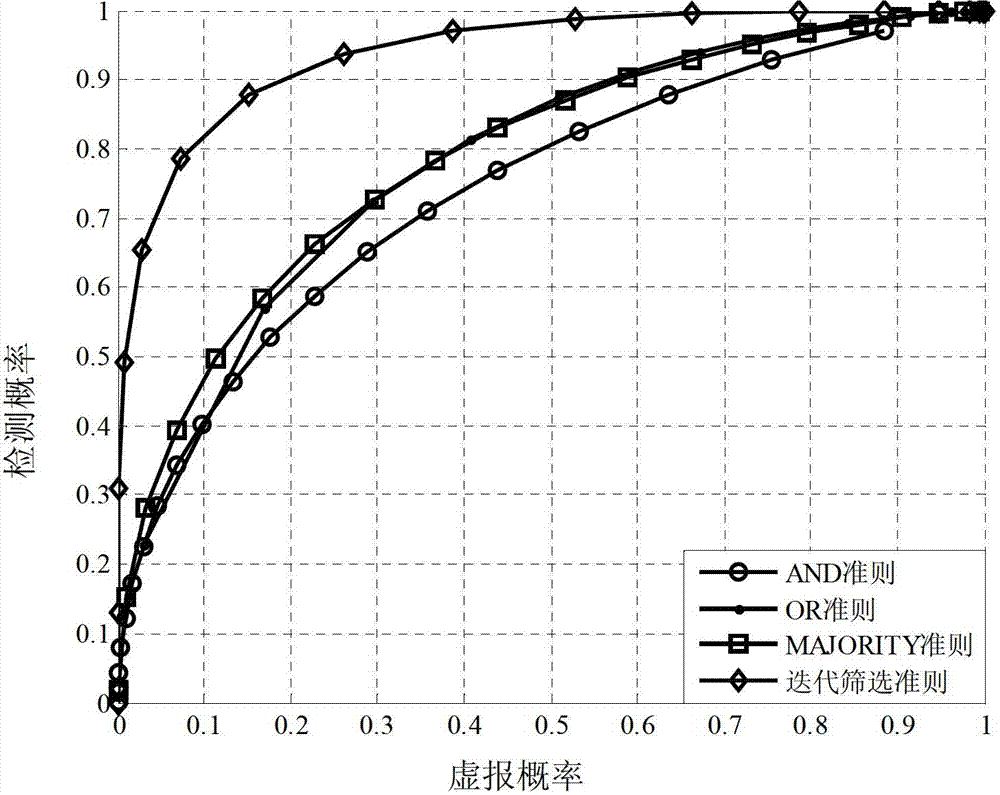Multi-channel collaborative spectrum sensing method based on iterative filtering
A cooperative spectrum sensing and spectrum sensing technology, applied in the field of multi-channel cooperative spectrum sensing based on iterative screening, can solve the problems of too many users and poor performance of cognitive network spectrum detection.
- Summary
- Abstract
- Description
- Claims
- Application Information
AI Technical Summary
Problems solved by technology
Method used
Image
Examples
Embodiment Construction
[0041] The present invention will be further described in detail below in conjunction with the accompanying drawings and specific implementation examples, which are explanations rather than limitations of the present invention.
[0042] The multi-channel cooperative spectrum sensing method based on iterative screening proposed by the present invention is to reduce participation in cooperative spectrum sensing by preferentially eliminating secondary users with poor perception performance or malicious interference users in each round of iteration in multi-channel cooperative spectrum sensing. The number of secondary users, while improving the performance of the entire network spectrum detection. Compared with the traditional cooperative spectrum sensing method, the iterative screening strategy proposed by the present invention is based on a relatively relaxed condition. In each round of iterative screening, each secondary user only needs to know the binary perception results of ...
PUM
 Login to View More
Login to View More Abstract
Description
Claims
Application Information
 Login to View More
Login to View More - R&D
- Intellectual Property
- Life Sciences
- Materials
- Tech Scout
- Unparalleled Data Quality
- Higher Quality Content
- 60% Fewer Hallucinations
Browse by: Latest US Patents, China's latest patents, Technical Efficacy Thesaurus, Application Domain, Technology Topic, Popular Technical Reports.
© 2025 PatSnap. All rights reserved.Legal|Privacy policy|Modern Slavery Act Transparency Statement|Sitemap|About US| Contact US: help@patsnap.com



